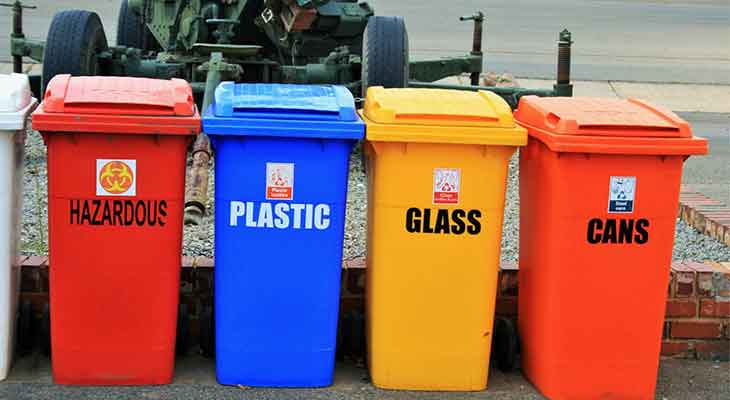How Can Recycling Help the Environment?
by Blake Harris
Posted on 10-01-2024 09:02 AM

Recycling plays a vital role in protecting our environment and conserving valuable resources. It is a process that transforms used materials into new products, reducing the need for raw materials extraction and minimising waste generation.
By participating in recycling initiatives, individuals, communities, and industries contribute to sustainable practices that help combat climate change, conserve energy, and preserve natural resources. This article explores the various benefits of recycling and highlights the significance of recycling paper and cardboard as an example.
1. Conservation of Natural Resources
One of the primary advantages of recycling is the conservation of natural resources. By recycling materials such as paper, cardboard, plastic, glass, and metal, we reduce the demand for raw materials that would otherwise be extracted from the Earth through mining, logging, or drilling.
For instance, recycling paper and cardboard reduces the need for cutting down trees, preserving forests and their vital role in carbon sequestration. It also saves water and energy required in the manufacturing process.
2. Energy Conservation
Recycling helps to conserve energy by reducing the energy-intensive processes involved in extracting, refining, and processing raw materials. When compared to producing new materials from scratch, recycling often requires less energy.
For example, recycling paper and cardboard consumes less energy than producing them from virgin wood pulp. By recycling these materials, we can reduce greenhouse gas emissions and mitigate the impact of climate change.
3. Reduction of Landfill Waste
Landfills are a major environmental concern, as they emit harmful greenhouse gases and contaminate soil and water sources. Recycling diverts waste from landfills, minimising the environmental impact of waste disposal.
Paper and cardboard, when recycled, are prevented from ending up in landfills, where they would contribute to methane production, a potent greenhouse gas. Instead, recycling these materials allows them to be transformed into new paper and cardboard products, extending their lifespan and reducing waste accumulation.
4. Pollution Reduction
Recycling helps to reduce pollution and its associated environmental hazards. When waste materials are not properly disposed of, they can contaminate water sources, release harmful chemicals, and contribute to air pollution.
For example, recycling paper and cardboard reduces the need for manufacturing processes that emit pollutants into the air and water. Additionally, it reduces the amount of waste that would otherwise be incinerated, leading to the release of pollutants and greenhouse gases.
5. Economic Benefits
Recycling can bring economic benefits to communities and industries. The recycling industry creates jobs in collection, sorting, processing, and manufacturing, contributing to local economies.
It also reduces costs for businesses by utilising recycled materials instead of relying solely on new resources. By adopting recycling practices, businesses can demonstrate their commitment to sustainability, attract environmentally conscious customers, and enhance their corporate social responsibility.
Example
Paper and cardboard recycling exemplify the positive impact of recycling on the environment. Recycling one ton of paper can save approximately 17 trees, 7,000 gallons of water, and 380 gallons of oil, and reduce greenhouse gas emissions by about 1.5 metric tons of CO2 equivalent.
Furthermore, recycling paper and cardboard reduces energy consumption by up to 70% compared to producing them from raw materials. There are many benefits of recycling paper and cardboard.
Final Thoughts
Recycling is an effective way to promote environmental sustainability and address the challenges of resource depletion, pollution, and waste management. By recycling paper, cardboard, and other materials, we conserve natural resources, save energy, reduce landfill waste, minimise pollution, and stimulate economic growth.
As individuals, we can contribute by adopting recycling practices in our daily lives, supporting local recycling programs, and spreading awareness about the importance of recycling for a healthier and more sustainable future.